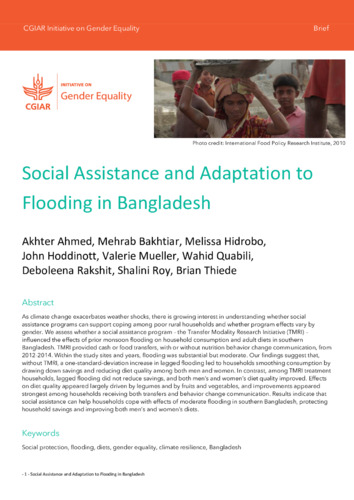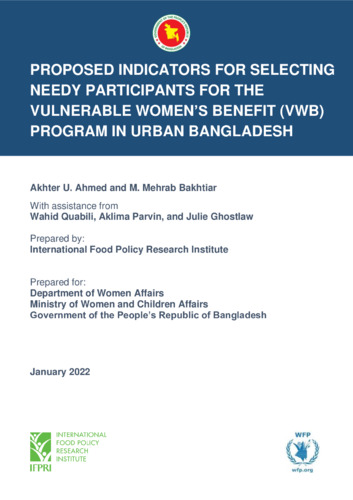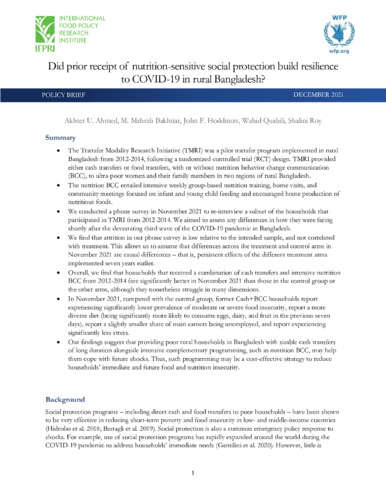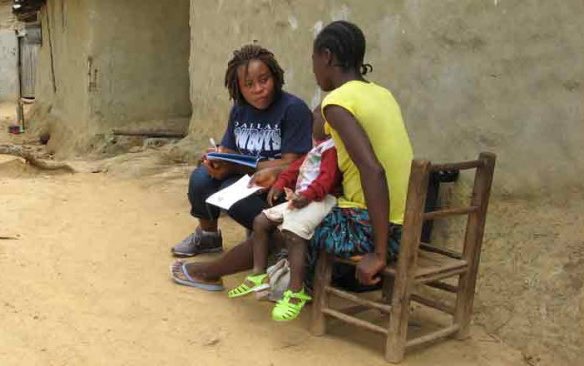Did prior receipt of nutrition-sensitive social protection build resilience to COVID-19 in rural Bangladesh?
Summary
• The Transfer Modality Research Initiative (TMRI) was a pilot transfer program implemented in rural Bangladesh from 2012-2014, following a randomized controlled trial (RCT) design. TMRI provided either cash transfers or food transfers, with or without nutrition behavior change communication (BCC), to ultra-poor women and their family members in two regions of rural Bangladesh.
• The nutrition BCC entailed intensive weekly group-based nutrition training, home visits, and community meetings focused on infant and young child feeding and encouraged home production of nutritious foods.
• We conducted a phone survey in November 2021 to re-interview a subset of the households that participated in TMRI from 2012-2014. We aimed to assess any differences in how they were faring shortly after the devastating third wave of the COVID-19 pandemic in Bangladesh.
• We find that attrition in our phone survey is low relative to the intended sample, and not correlated with treatment. This allows us to assume that differences across the treatment and control arms in November 2021 are causal differences – that is, persistent effects of the different treatment arms implemented seven years earlier.
• Overall, we find that households that received a combination of cash transfers and intensive nutrition BCC from 2012-2014 fare significantly better in November 2021 than those in the control group or the other arms, although they nonetheless struggle in many dimensions.
• In November 2021, compared with the control group, former Cash+BCC households report experiencing significantly lower prevalence of moderate or severe food insecurity, report a more diverse diet (being significantly more likely to consume eggs, dairy, and fruit in the previous seven days), report a slightly smaller share of main earners being unemployed, and report experiencing significantly less stress.
• Our findings suggest that providing poor rural households in Bangladesh with sizable cash transfers of long duration alongside intensive complementary programming, such as nutrition BCC, may help them cope with future shocks. Thus, such programming may be a cost-effective strategy to reduce households’ immediate and future food and nutrition insecurity.
Authors
Ahmed, Akhter; Bakhtiar, M. Mehrab; Hoddinott, John F.; Quabili, Wahid; Roy, Shalini
Citation
Ahmed, Akhter; Bakhtiar, M. Mehrab; Hoddinott, John F.; Quabili, Wahid; and Roy, Shalini. 2021. Did prior receipt of social protection build resilience to COVID-19 in Bangladesh? Washington, DC: International Food Policy Research Institute (IFPRI). https://hdl.handle.net/10568/143094
Country/Region
Bangladesh
Keywords
Southern Asia; Asia; Covid-19; Social Protection; Resilience
Access/Licence
Open Access
Project
Policies, Institutions, and Markets








